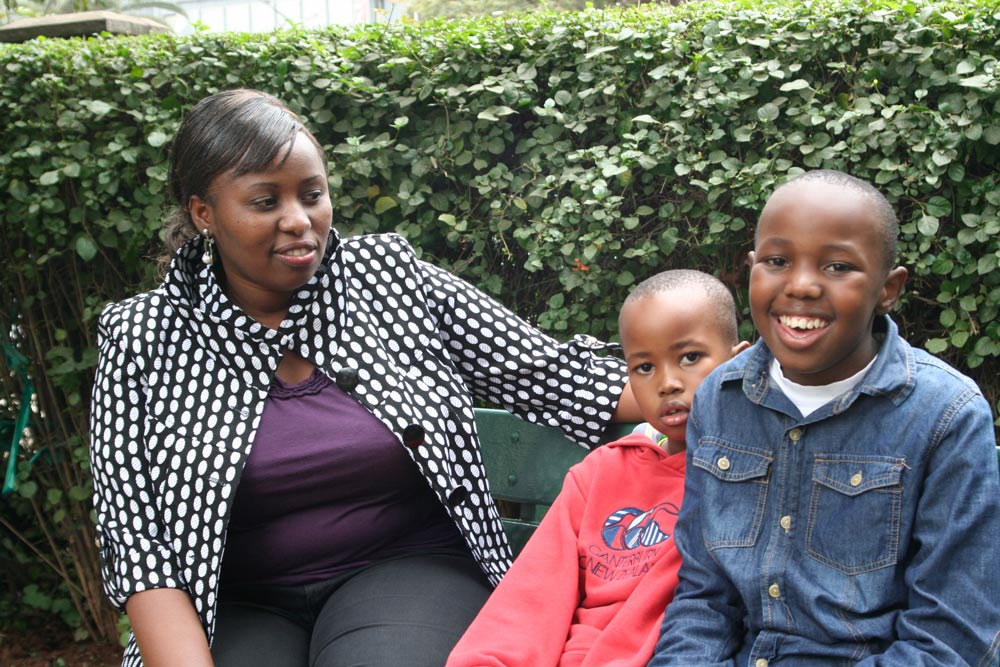Esther Mung’ui, 37, is a mother of two boys. Her eldest son Ian, is aged 15 years and is autistic. I’ve previously written about Esther here. With more parents nowadays receiving diagnosis of Autism in their children, I talked to Esther about the most important lessons she has learned with regard to raising Ian, and her subsequent advice to fellow parents who are raising children within the Autism Spectrum Disorder (ASD).
I believe her insights will be helpful to parents, guardians and relatives who are involved in caring for and raising children -not only those within the Autism spectrum, but other special needs children too.

So these are the five important lessons Esther has learned.
Lesson #1: Patience
As a parent of an autistic child, you must have patience. From delayed milestones, difficulties with potty training, challenges in undertaking activities of daily living such as dressing up, brushing teeth, feeding themselves etc. All of these will take time – sometimes a lot of time, and you just have to learn how to be very patient with your child and allow them to take one step at a time; at their own pace.
Lesson #2: Love
I have learnt to love my son, no matter what. You must love your child unconditionally. There will be moments of frustration for both you and your child, but your devoted love and care must prevail at all times. You will find that your child may be unable to express themselves, will sometimes be very frustrated –leading to hyperactivity, tantrums or meltdowns, and many times he/she might feel agitated or pushed away as no one seems to understand them. But when you embrace your child and show him/her sincere love, when they are assured that you love them no matter what, it soothes and calms down their anxiety.

Lesson #3: Acceptance
I have learnt to accept that Ian is my son, and that he is an autistic child with special needs. I can say for sure that being in denial is the worst thing that can happen, so the moment you just have to accept the circumstances you are in and learn to make the best of the situation, you are able to cope better. While it’s not easy, but it certainly is possible. I would also say that if you’re finding it hard to deal with, then reach out to other parents who have gone through similar circumstances; we are here to help you. You are not alone.
Lesson #4: Understand the Circumstances
Your child might decide to pee anywhere due to his inability to express himself, or soil himself such as when travelling. Sometimes when my son gets sensory overload, he son screams while blocking his ears, regardless of where we are. I have learnt to understand him and ignore the crowd if we are in a public place, while dealing with the situation accordingly.
Lesson #5: Celebrate the Milestones
I have learnt to appreciate any little milestones or achievements that my son makes. For example the day he learnt how to go to the toilet by himself, to feed, bathe, brush his teeth, read and write some few words. These are such HUGE achievements and I celebrate each and every one of them!” -END
Thank you Esther for sharing your experiences.
Related: How to Teach a Special Needs Child to Dress Themselves [VIDEO]
So those are some of the lessons that Esther has learned, and continues to learn. I hope you will find them helpful. You may also share with a fellow parent -it may be of help to them too.
See Previous Post: When to Stop Blending Your Baby’s Food
Here at Mummy Tales: Raising a Family in Africa, I like sharing inspirational stories of other women -experiences that we can all learn from. If you have an experience you’d like to share with other women, you can email me on maryanne@mummytales.com and I’ll be in touch with you.
Thanks for reading. You may also connect with me on FACEBOOK l YOU TUBE l INSTAGRAM l TWITTER
You may also be interested in reading the stories below:
“Why it Took me Years to Realize that My Son Could Neither Speak nor Hear” -Regina Wanjiru







































